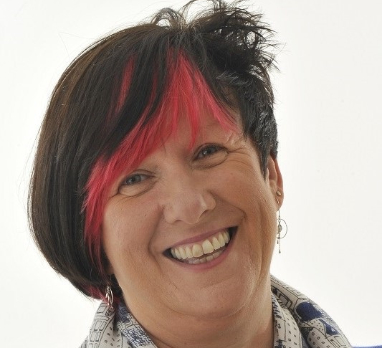As part of Action for Brain Injury Awareness Week we have been considering the theme “a life of lockdown” and the impact that the pandemic has had upon brain injury survivors.
Denyse Procter, a specialist brain injury case manager with Westcountry Case Management and Occupational Therapist with Cofio Limited, agreed to share her thoughts about how the pandemic has impacted upon her clients:

“As a case manager specialising in brain injuries, I have seen up close the enormous impact the pandemic and subsequent lockdown has had on my brain injured clients.
I have clients who had their brain injuries years ago; clients who, through specialist rehab, support and intervention have made good significant progress on their rehab journeys. They had well established protective mechanisms in place: routines, support workers, gym programmes, voluntary placements, attendance at community groups or Headway. The lockdown swept away these protective mechanisms, which, alongside reduced social contact and the increased anxiety caused by the pandemic, placed clients and their families under additional pressure. Many clients and families showed great resilience, but the impact of the lockdown is impossible to ignore. Each client had their own unique challenges from struggling to learn to operate technology to adapting to a virtual rehabilitation programme.
I am confident that some clients, post pandemic, we will re-establish routines with some familiar activities, maybe some new activities and they will settle and adjust once more.
For clients in the early stages of their rehab, the impact has been slightly different. I have one client, Owen who was in the midst of his rehab journey as the pandemic hit. He was receiving occupational therapy, speech & language therapy, neuropsychology and physiotherapy. Owen had also started a phased return to work prior to the first lockdown. He also had much needed surgery scheduled.
Owen’s therapy team were inventive and quickly arranged the delivery of a virtual rehab programme. He was motivated and engaged well under the circumstances. However, there are limitations to rehab that is delivered virtually. For example, the speech and language therapist has been working with Owen to address his difficulties in social communication and behaviours which involved the development of communication strategies. To consolidate his learning, Owen needs to practice in real life situations by communicating with a variety of people; this was not possible under the lockdown scenario. Owen’s occupational therapist is working with him to develop his independent living skills. Again, practice in real life situations is required. Owen is now having face-to-face sessions with his OT again. Learning how to shop again is more difficult for him, with his functional memory difficulties; not only does Owen have to plan his shopping, he has the additional challenges of remembering his mask, hand sanitiser and following social distancing rules.
It is impossible to ignore the impact of the lockdowns on Owen’s well-being. He was in danger of becoming isolated and his motivation waned. Owen’s surgery was delayed by a year, causing an additional year of discomfort and distress, which affected his mood and self-esteem. His phased return to work programme was paused as he was furloughed. Owen found it impossible to maintain his stamina and the physical gains he made initially in physiotherapy under lockdown restrictions. His independent living trial has been delayed and COVID is affecting recruitment of a support worker.
The vaccination programme has brought some light to the end of the tunnel. Owen has undergone his planned surgery. He has recommenced his phased return to work although his reduced stamina meant we have had to go back several steps. COVID rules have resulted in changes to Owen’s working environment, which causes him additional stress as work is no longer a place which is familiar and comfortable.
The pace of Owen’s rehab has inevitably been affected due to the lockdown restrictions. Undoubtably, COVID has added some unexpected, additional twists and turns along the path of his rehab journey. However, with an experienced clinical team in place, I am confident we will ultimately help Owen to reach his full potential.”
Cari Sowden-Taylor, a solicitor and Partner in our Neurolaw team represents claimants who have suffered brain and spinal cord injuries after traumatic events. Cari passionately believes that access to specialist neuro-rehabilitation can have a positive impact and help individuals to achieve the best possible outcome after a life changing injury.
Cari says:
“Many of my brain injured clients have unfortunately had their rehabilitation affected by the pandemic, but it has been good to see the ways in which support has been offered by case managers and multi-disciplinary teams, some of which has required a lot of ‘thinking outside of the box’.
Some people after a brain injury find it very difficult to use technology and so using video calls instead of face-to-face meetings has been extremely challenging and just getting individuals onto a call can take a lot of effort and management of frustrations on the part of clients. Now that restrictions are starting to be eased, is hoped that face to face meetings can start to become the norm again and I hope that this will translate into effective rehabilitation and help individuals to maximise their independence after suffering life changing injuries.
A lot of my clients have also had much needed surgical procedures placed on hold. The uncertainty as to when surgery will be rescheduled has, understandably, caused anxiety and frustration which, for some clients, especially those suffering from traumatic brain injuries, can be difficult to handle. The anxiety and frustration can have a ripple effect upon family members who have had to provide a significant amount of extra support during the last 14 months due to normal face to face rehabilitation services being limited during the pandemic.
Given that it has been difficult for professional carers/ support workers/ or PAs to be recruited during the pandemic, it has fallen to family members to provide much needed support to individuals who have suffered life changing injuries. Many of the family members of clients whom I speak to, describe exhaustion and worry in respect of the support they have provided during the last 14 months and what the future holds for their loved ones. It really has taken its toll on brain injury survivors and their families.
It is hoped that defendant insurers will be understanding of the difficulties that have arisen and been experienced by claimants during lockdown and the impact it has had and continues to have in terms of rehabilitation.
It is good to see the vaccination programme going so well in the UK and I very much hope that normal rehabilitation services will be able to resume as soon as possible so that brain injury survivors can be supported and make the best possible recovery.”


